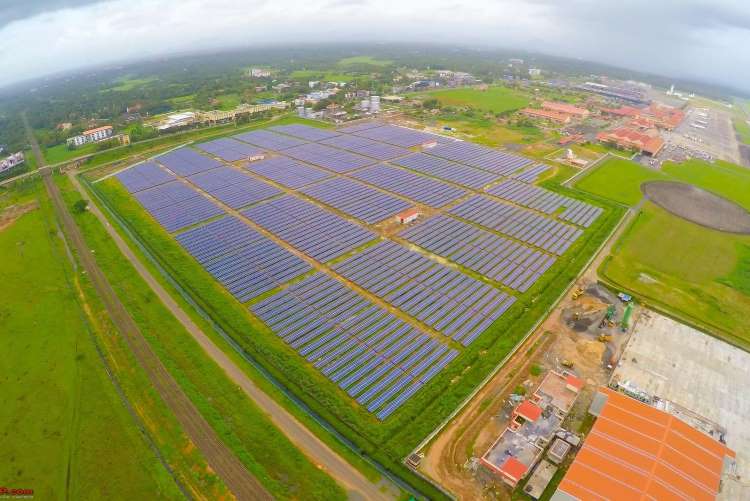
As the world transitions to a net-zero emissions economy, one of the key challenges is to ensure energy security while also meeting climate goals. Energy security is crucial for any country to maintain economic stability and development. However, traditional energy sources such as coal, oil, and gas are major contributors to greenhouse gas emissions. The shift from fossil fuels to renewable energy is essential to reducing greenhouse gas emissions. However, the transition must be done in a way that does not disrupt energy security.
Global energy security is a complex challenge that is further complicated by the need to reduce greenhouse gas emissions and achieve net-zero goals. This requires a delicate balance between meeting growing energy demands, reducing carbon emissions, and addressing geopolitical challenges and power struggles. First and foremost, global energy consumption is projected to continue to rise, driven by the growing population, urbanization, and economic development. This will require significant investments in energy infrastructure and resources, which in turn will increase greenhouse gas emissions and exacerbate climate change.
READ I Sustainable transport: Rethinking mobility for a greener future
Energy security and sustainability
This creates a fundamental tension between meeting growing energy demand and reducing carbon emissions. Furthermore, new economic powers such as India and China, with large populations, will need their energy security to ensure adequate energy supply for their population. This would further challenge the developed countries to reduce emissions while maintaining economic competitiveness. This creates an additional challenge for global energy security, as it requires a coordinated effort across all nations to reduce emissions and address climate change.
In addition to these challenges, geopolitical tensions and power struggles also play a role in global energy security. This is particularly true for fossil fuels, which remain a significant source of energy for many nations. The control and distribution of these resources can lead to conflicts and tension between countries, as seen in the recent tensions between Russia and Ukraine over natural gas. Moreover, the shift towards renewable energy sources also poses a challenge for global energy security. Another crucial aspect of achieving global energy security is to reduce energy waste and encourage energy efficiency. This means promoting sustainable consumption patterns and investing in energy-efficient technologies and infrastructure.
By reducing energy waste, we can lower energy consumption, which in turn can help reduce greenhouse gas emissions and combat climate change. Furthermore, achieving inclusive growth in the context of energy security requires addressing the energy needs of communities that have traditionally been left behind. This means developing energy solutions that are accessible, affordable, and reliable for low-income households and communities in rural and remote areas.
While renewable energy sources offer significant potential for reducing emissions and achieving net-zero goals, they are often more intermittent and less reliable than traditional fossil fuels. This creates a need for significant investment in energy storage and grid infrastructure to ensure a reliable supply of energy.
Renewable energy sources such as wind, solar, hydro, and geothermal are becoming increasingly cost-competitive, and investment in them is crucial. Governments must provide subsidies, tax breaks, and other incentives to promote investment in renewables. These incentives must be targeted not only towards the energy sector but also towards industries and households that are the major consumers of energy.
Promoting energy efficiency is another effective way to reduce energy demand. Energy-efficient buildings and appliances can significantly reduce energy consumption. Governments can encourage energy efficiency by providing financial incentives and regulations that promote efficient energy use.
Another critical aspect of achieving energy security without compromising net-zero goals is the transition to electric vehicles. Transportation is one of the biggest consumers of fossil fuels and a major contributor to greenhouse gas emissions. Governments must incentivize the adoption of electric vehicles by providing subsidies, tax breaks, and other incentives to reduce the cost of electric vehicles and make them more affordable. Promoting sustainable mobility is another key aspect of achieving energy security without compromising net-zero goals.
Governments can encourage people to walk or cycle to work, reducing the demand for transportation fuel. Investing in public mass transportation systems powered by renewable energy is another effective way to reduce the use of fossil fuels in transportation. Walk-to-work programs, bike-sharing programs, and carpooling initiatives are some of the ways governments can encourage sustainable mobility. In addition, public mass transportation systems such as buses, trains, and metros powered by renewable energy can significantly reduce the carbon footprint of transportation.
Governments can incentivize the adoption of these transportation options by providing subsidies and tax breaks for public transportation systems that use renewable energy sources. However, the transition to sustainable mobility requires significant investments in infrastructure. Governments must invest in the development of bike lanes, walkways, and public transportation systems powered by renewable energy. Public-private partnerships can be created to finance the development of these infrastructure projects, and government policies can encourage private investment in sustainable transportation.
Financing energy transition
Financing the transition to renewable energy is a major challenge. Financing the development and deployment of sustainable energy technologies and infrastructure is a significant challenge due to several factors. Firstly, renewable energy technologies require significant upfront capital investments, which can be a significant barrier for many countries, particularly those with limited resources or underdeveloped financial systems.
These investments often require long-term commitments and are typically more expensive than traditional fossil fuel-based energy systems. Secondly, renewable energy projects often face regulatory and legal challenges that can increase costs and deter investment. The complexity and variability of regulations across different jurisdictions can make it difficult for investors to evaluate risks and returns, leading to a lack of investment.
Thirdly, the lack of adequate policies and incentives to support renewable energy deployment can be a significant challenge. Many countries continue to provide subsidies and incentives for traditional fossil fuel-based energy systems, which can make it difficult for renewable energy technologies to compete on cost. Additionally, many countries lack policies and incentives that support the development of renewable energy technologies, such as feed-in tariffs or tax credits.
Fourthly, the limited availability of financing options for renewable energy projects is another significant challenge. Many financial institutions may be hesitant to invest in renewable energy projects due to perceived risks, uncertainties around regulatory frameworks, and the relatively new and untested nature of many renewable energy technologies.
Lastly, political and economic instability, corruption, and conflict can also make financing renewable energy projects challenging. These factors can create significant uncertainty and increase the perceived risks associated with investing in renewable energy projects. Governments can create public-private partnerships and encourage investment in renewable energy projects. The private sector can provide financing for renewable energy projects, while governments can provide policy support, including regulations and incentives.
The transition to renewable energy is important for achieving energy security without compromising net-zero goals. Governments must invest in renewables, promote energy efficiency, incentivize the adoption of electric vehicles, and create public-private partnerships to finance the transition. With the right policies and incentives, achieving energy security without compromising net-zero goals is not only possible but also economically viable.
Srinath Sridharan is a strategic counsel with 25 years experience with leading corporates across diverse sectors including automobiles, e-commerce, advertising and financial services. He understands and ideates on intersection of finance, digital, contextual-finance, consumer, mobility, Urban transformation, and ESG. Actively engaged across growth policy conversations and public policy issues.

